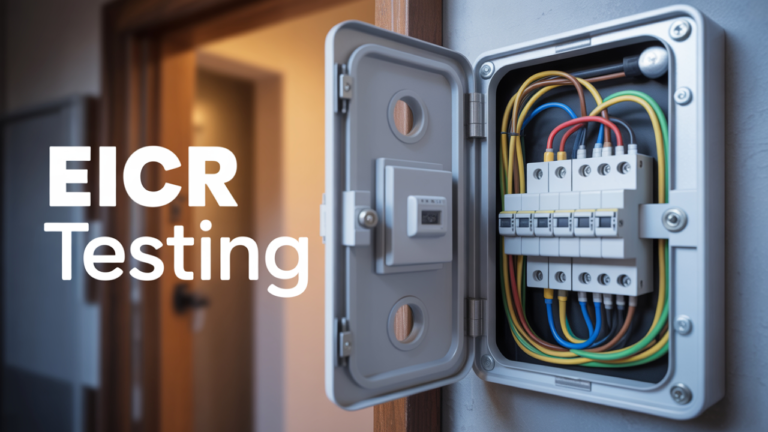Introduction
In today’s world, where environmental consciousness and corporate responsibility are no longer optional, sustainability reporting has become a vital part of every organization’s strategy. Companies across industries are now required to measure, manage, and communicate their environmental, social, and governance (ESG) performance to stakeholders. However, collecting accurate data, analyzing it efficiently, and producing transparent sustainability reports can be a challenging process. That’s where the best sustainability reporting software comes into play. This advanced technology simplifies data management, automates reporting processes, and ensures compliance with global sustainability standards.
Understanding Sustainability Reporting
Sustainability reporting involves the systematic disclosure of a company’s ESG activities and performance. It highlights how businesses contribute to sustainable development by managing environmental impact, promoting social well-being, and maintaining ethical governance. The reports are usually prepared in accordance with recognized frameworks such as the Global Reporting Initiative (GRI), Carbon Disclosure Project (CDP), Sustainability Accounting Standards Board (SASB), and Task Force on Climate-related Financial Disclosures (TCFD).
Manual sustainability reporting is time-consuming, prone to errors, and often leads to inconsistencies. This is why most organizations now turn to automated solutions that can handle vast datasets, track key performance indicators, and generate compliant reports.
What is Sustainability Reporting Software?
Sustainability reporting software is a specialized digital tool that enables organizations to collect, analyze, and report their ESG data effectively. It streamlines data gathering from multiple departments, helps in performance tracking, and provides insights into sustainability initiatives. The software helps ensure transparency and compliance with various reporting standards while saving time and minimizing human error.
Key features often include data visualization dashboards, carbon footprint calculators, energy tracking modules, and real-time analytics. The goal is to help businesses not only report their sustainability efforts but also improve their environmental and social performance over time.
Why Sustainability Reporting Software is Essential for Modern Businesses
In a business landscape increasingly driven by environmental accountability, using the best sustainability reporting software offers multiple benefits:
-
Accuracy and Transparency: Automated tools ensure that data collected from different departments is accurate, consistent, and up-to-date.
-
Regulatory Compliance: With evolving global ESG regulations, such software ensures reports meet international standards like GRI, SASB, and TCFD.
-
Time and Cost Efficiency: Manual data compilation can take weeks, whereas software tools automate these processes, reducing time and costs significantly.
-
Enhanced Decision-Making: Real-time analytics and dashboards provide actionable insights that help leaders make informed sustainability decisions.
-
Improved Reputation: Transparent sustainability reporting improves brand image, investor confidence, and customer trust.
-
Risk Mitigation: Monitoring environmental and social risks through centralized data helps businesses proactively address potential challenges.
Top Features to Look for in the Best Sustainability Reporting Software
When selecting a sustainability reporting platform, businesses must focus on key features that enhance efficiency and reliability:
-
Data Integration: The software should integrate seamlessly with existing enterprise systems like ERP, CRM, and financial software to gather relevant data automatically.
-
Customizable Reporting Frameworks: It should support multiple standards, allowing customization based on the organization’s reporting goals.
-
Automated Data Collection: Reduces manual effort by automatically capturing data from different business units or locations.
-
Real-Time Dashboards: Enables visualization of key sustainability metrics through charts, graphs, and scorecards.
-
Carbon Accounting Tools: Measures and reports emissions data in line with GHG protocols.
-
Performance Benchmarking: Compares the company’s ESG performance with industry peers.
-
User-Friendly Interface: Ensures accessibility for both technical and non-technical users.
-
AI and Predictive Analytics: Uses artificial intelligence to forecast sustainability outcomes and recommend actions for improvement.
-
Security and Data Privacy: Protects sensitive data with encryption and secure access controls.
-
Audit and Verification Support: Provides traceable records and audit-ready documentation to ensure accuracy and compliance.
Top 10 Best Sustainability Reporting Software Solutions in 2025
As sustainability reporting becomes a corporate priority, several software providers have emerged with powerful tools. Here are some of the best platforms currently available:
1. Diligent ESG
Diligent ESG is a leading sustainability platform that offers comprehensive ESG data management and reporting features. It supports frameworks like GRI, SASB, and TCFD, providing automation and AI-based analytics. Its intuitive interface and real-time dashboards make it ideal for enterprise-level reporting.
2. Workiva
Workiva is widely recognized for its strong integration capabilities and compliance automation. It allows organizations to connect financial, operational, and ESG data in one unified platform. Workiva’s cloud-based architecture makes it scalable and perfect for global companies managing complex sustainability data.
3. Persefoni
Persefoni specializes in carbon accounting and climate management. It helps businesses measure, analyze, and disclose carbon emissions in alignment with global standards. Its AI-driven analytics make it one of the best sustainability reporting software tools for companies aiming to achieve net-zero goals.
4. IBM Envizi ESG Suite
IBM Envizi provides a comprehensive approach to ESG data management, offering modules for energy management, carbon tracking, and sustainability performance analytics. The platform integrates easily with IBM’s cloud ecosystem and uses AI to enhance data accuracy and reporting efficiency.
5. SpheraCloud
SpheraCloud’s sustainability suite enables organizations to manage ESG data, report on sustainability goals, and ensure compliance. Its advanced analytics and automation tools support sustainability strategies across multiple industries, from manufacturing to energy.
6. Greenstone
Greenstone provides end-to-end ESG and sustainability data management solutions. The platform supports customizable reporting frameworks and delivers detailed insights through performance analytics and benchmarking tools. It is well-known for its flexibility and reliability.
7. FigBytes
FigBytes connects sustainability and ESG data to organizational strategy. It provides a visual and storytelling-based approach to sustainability reporting, allowing companies to communicate progress in an engaging way. The software supports carbon management, SDG tracking, and impact visualization.
8. Cority Sustainability Cloud
Cority offers a unified platform that integrates ESG, EHS, and sustainability data management. It helps businesses centralize sustainability initiatives, ensuring accurate data collection and compliance reporting. The platform is ideal for mid to large enterprises.
9. Benchmark Gensuite ESG
Benchmark Gensuite is designed for organizations seeking automation and flexibility in sustainability reporting. It includes modules for energy management, waste tracking, emissions reporting, and more. Its mobile accessibility allows real-time monitoring and updates from anywhere.
10. Emex ESG Software
Emex provides intuitive sustainability and ESG management tools for enterprises. It enables automated data collection, compliance monitoring, and reporting aligned with global standards. The platform’s scalability and customization options make it a great choice for diverse industries.
How to Choose the Right Sustainability Reporting Software for Your Business
Choosing the best software depends on several organizational factors such as size, industry, goals, and budget. Here are some important steps to follow:
-
Define Objectives: Identify what you want to achieve — whether it’s carbon accounting, ESG reporting, or performance benchmarking.
-
Assess Data Needs: Determine the type and amount of data your business generates and how it should be integrated.
-
Check Compatibility: Ensure the software integrates with existing systems and can scale with business growth.
-
Evaluate Reporting Frameworks: Choose a tool that supports the reporting standards relevant to your industry and region.
-
Consider User Experience: Opt for software with an intuitive interface and easy navigation.
-
Prioritize Security: Verify that the software meets compliance standards for data protection.
-
Request a Demo: Always test the platform before purchase to ensure it aligns with your needs.
The Future of Sustainability Reporting Software
As sustainability becomes a core element of corporate strategy, the future of reporting software looks more advanced and data-driven. Emerging technologies like artificial intelligence, blockchain, and IoT are revolutionizing ESG reporting. AI can predict sustainability outcomes, blockchain ensures data transparency, and IoT devices provide real-time environmental data.
Moreover, upcoming global regulations are pushing companies toward more comprehensive sustainability disclosures. Hence, the demand for automated ESG reporting tools will continue to rise, especially those that support predictive insights, real-time analytics, and scenario modeling.
Conclusion
In an era where corporate accountability is as crucial as profitability, adopting the best sustainability reporting software is no longer an option but a necessity. These tools help organizations streamline ESG data collection, enhance transparency, ensure compliance, and drive long-term sustainability performance. From global leaders like Diligent ESG and Workiva to specialized tools like Persefoni and FigBytes, each software offers unique capabilities tailored to different business needs.
By investing in the right sustainability reporting platform, companies can strengthen stakeholder trust, align with global sustainability goals, and pave the way for a greener, more responsible future. The journey toward sustainable growth begins with data, and the right software ensures that every number tells a story of positive change

